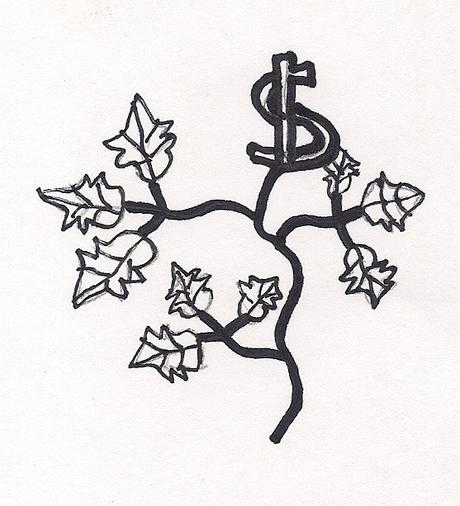
If you are reading this and you are in your early twenties, you’re looking at needing somewhere north of $3M in savings to pay for a comfortable retirement. $10M would be better. Obviously this seems daunting (which it is), even though your final salary will probably be somewhere near $150,000, and that will buy what $75,000 will buy now.
If you wanted to save $3M, meaning putting $3M away in you mattress, you would need to save about $5600 per month – something few people could do even if they started out saving less and then increased the amount as time went on. Part of the problem is that inflation will eat away at the savings you put away early on. Indeed, the dollars you put away in your twenties will buy half as much or a quarter as much when you are 65 as they did when you were 20.
The other problem is that you need to be producing almost 150% of what you need during your career to pay for retirement. This is because you’ll be working for 45 years but saving for 20-30 years. You need to pay for the food, shelter, and other expenses of day-to-day life while squirreling money away for needs later on in life.
This is just to hard and most people would just give up. They would decide to “live for today” and not worry about retirement. Unfortunately, this is what a lot of people do, and they find themselves destitute at the end of life.
Saving for retirement is difficult and unless you have a really large income and live on a small portion of it, you won’t get there by saving. Investing for retirement, on the other hand, is fairly easy and anyone with a middle class income who is willing to put aside 10-15% of their pay for retirement can make it easily. Even people with a high lower class income can amass enough for retirement through investing. The reason is the power of compounding.
Putting money in your mattress, you’ll lose about 3% per year to inflation. While this may not seem like much, after about 20 years the buying power of your money will be cut in half. Wait another 20 years, and it will be a quarter of what it once was. Put away $100,000 away when you’re 20 and it will buy about $25,000 worth of goods when you’re 60. Even putting money in bank CD’s, you’ll lose about 1% to inflation each year. Let that go on for 45 years and you’ll lose about 1/3 of the buying power.
If you invest, you can get interest on your side. Investing in stocks, you can get between 7 and 12% after inflation. At 7%, you money will double every 10 years. At 12%, it will double about every 6 years. Each dollar you put away when you are 20 might be worth $64 or even $120 at retirement. Put away $5,000 when you’re 20? You might have $600,000 when you’re 65. Do this from age 20-25 and you might very well have the $3M you need for retirement.
So what do you invest in? The best investment for long-term holding is equities (stocks), and the best way to invest in stocks for retirement is in index mutual funds and index ETFs because they have very low fees and provide the diversification you need to avoid the effects of single stock risk. Buy a large cap and a small cap index fund and you’re practically done. Too much work? Just buy a total market index fund. With a little more work you can raise your returns by a few percentage points, which can mean thousands or even millions more at retirement, but for most people index funds are fine.
So don’t save for retirement – that’s too hard. Invest instead. And start early – that makes it even easier.
Your investing questions are wanted. Please send to [email protected] or leave in a comment.
Follow on Twitter to get news about new articles. @SmallIvy_SI
Disclaimer: This blog is not meant to give financial planning or tax advice. It gives general information on investment strategy, picking stocks, and generally managing money to build wealth. It is not a solicitation to buy or sell stocks or any security. Financial planning advice should be sought from a certified financial planner, which the author is not. Tax advice should be sought from a CPA. All investments involve risk and the reader as urged to consider risks carefully and seek the advice of experts if needed before investing.
